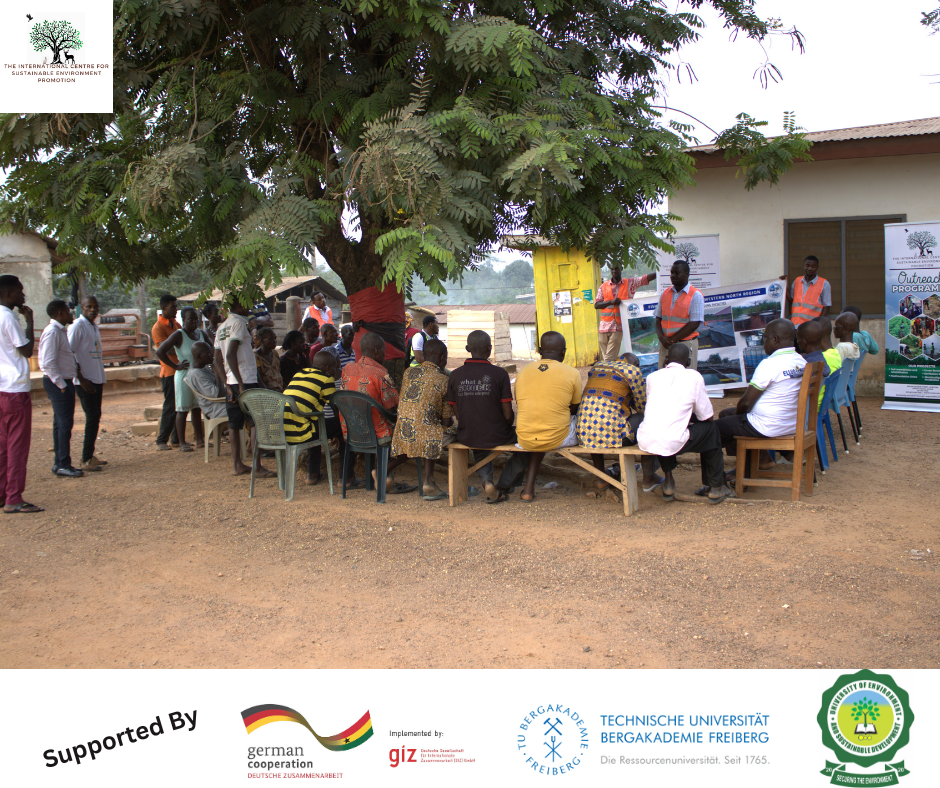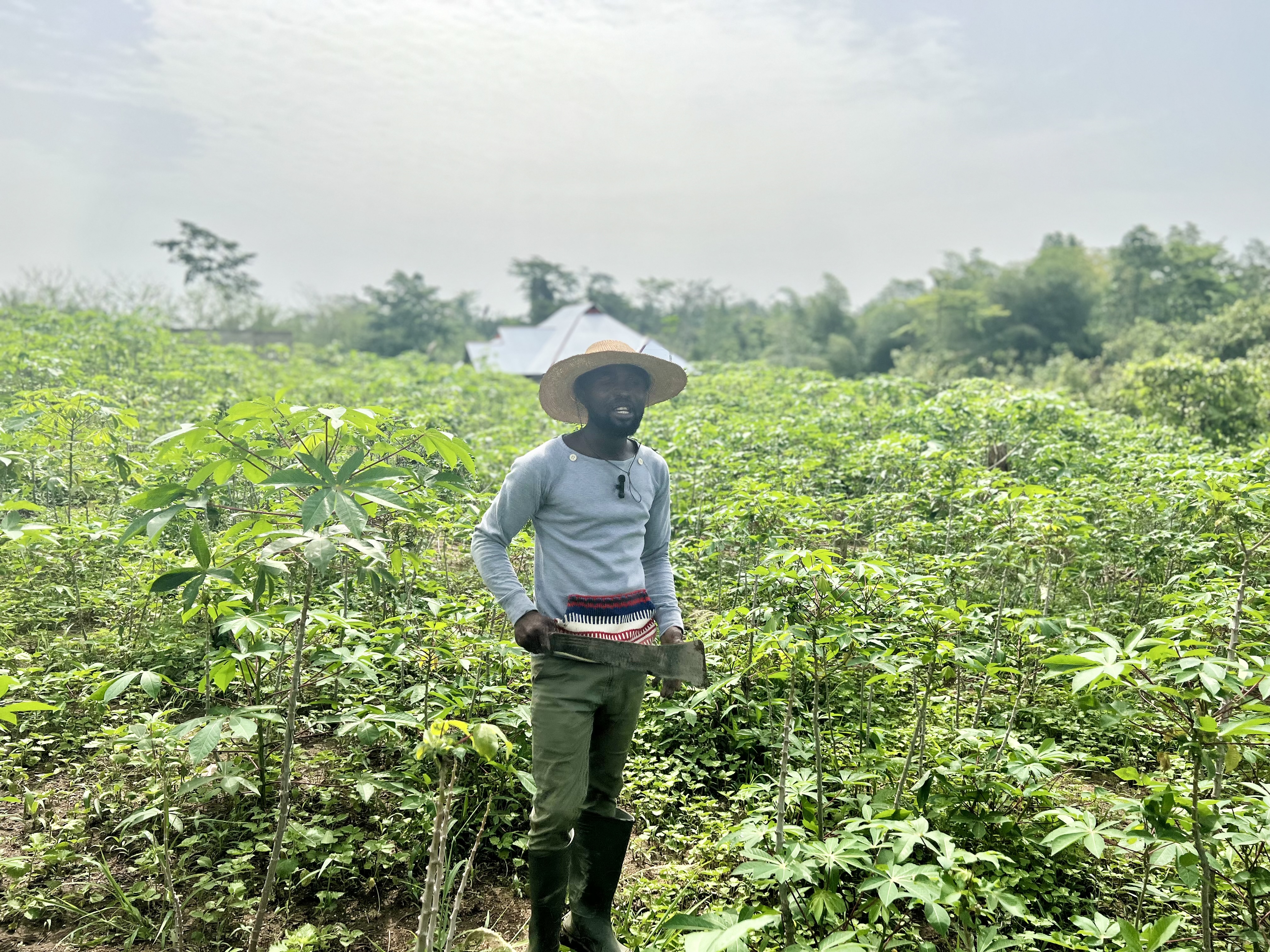TICSEP Facilitates Sustainable Agriculture Training for Green Investors
Admin April 22, 2024
GreenBusiness

Somanya, Ghana: Towards global efforts in building climate-smart economies through climate resilience and green enterprises, farmer groups in the Eastern region of Ghana were trained on modern and sustainable approaches to agriculture on the 21st February 2022 at Agomeda. This was a collaborative programme between TICSEP, the University of Environment and Sustainable Development (UESD) and funding from Programme Migration and Diaspora of the GIZ-Ghana. The beneficiary audiences included representatives of farmer's associations, agriculture extension officers, marketers, and community leaders. This practical and interactive session was held at Agomeda community and graced by the Hon. Noah Sabotey (Presiding Member of the Yilo Krobo Municipal Assembly).
The training session began by reflecting on participants' existing knowledge of climate change, its effects and mitigation measures. Some of the enumerated points included the unpredictability of climatic patterns which severely affected planting seasons and yield, pests, and disease resurgence especially, bacteria black spot (BBS) disease of mangoes which was echoed as a major challenge that kept killing their mango plants, reduced yield and caused financial losses to investors and their families despite several mitigation measures implemented. Drying of nearby water bodies which previously served as irrigation sources and the need for continued use of chemical fertilizers to boost yield due to poor soil fertility were mentioned. Some control measures further suggested by participants included pruning and burning of BBS-affected plant parts and application of chemicals at recommended rates and intervals.
After thorough discussions, the main objective of the gathering “Climate-smart agriculture techniques workshop” followed. Fortuitously, the farmers had already mentioned this as a challenge to their farm business. Thus, they had an appreciable understanding of the topic for the day. Further efforts through questioning were made to let the farmers give practical examples of what climate change is and how it had affected their operations. Simulation of the existing farming practices was done to help assess how each step could potentially contribute to climate change effects. These included bushes clearing> cutting down of trees> burning> tilting of land> and planting. After working in groups for lifecycle analyses, participants noted that their usual tree cutting reduced oxygen levels and increased CO2 in the atmosphere, burning of fields released gases, and heat, and reduced soil quality through the destruction of soil microorganisms and nutrients. Additionally, cultivations near river bodies were blamed for the increasing rate of draughts as they exposed them to direct sunshine.
After exhaustive discussions/ debates members were also guided to suggest ways, they can help repair the damages caused by the unsustainable farming practices enumerated. These included not cultivating areas that are 100 m near a water body, reducing bush burning by clearing lands months ahead of the planting season to give a chance for adequate decomposition (zero tillage), mixing tree crops with already available tree species where possible, and reduction of the over-reliance on agro-chemicals were also advocated for adoption. As a means of maximizing the potential of their farm space, farmers were encouraged to diversify their business through the incorporation of traditional farming techniques such as mushroom farming, beekeeping, snails, rabbit and grasscutter rearing. These would help them improve their revenue generation and limit climatic shocks. Composting procedures and integrated pest management approaches such as using birds to control insects at certain periods of the season were taught. Farmers were also trained on how to build insect traps themselves and reduce the over-reliance on chemical control methods which further harmed the environment apart from the direct health risks to them. In the case of controlling the BBS diseases on their farms, participants were admonished to do adequate due diligence in the procurement of the seedlings for their orchid, ensure the disinfestation of farm tools, clothing, and machinery, and strictly adhere to extension officers. Further research by the UESD was implored to help design more sustainable solutions to boost agriculture and other green jobs in the area.
Related Posts

GreenBusiness

GreenBusiness

GreenBusiness
Admin
May 1, 2024



